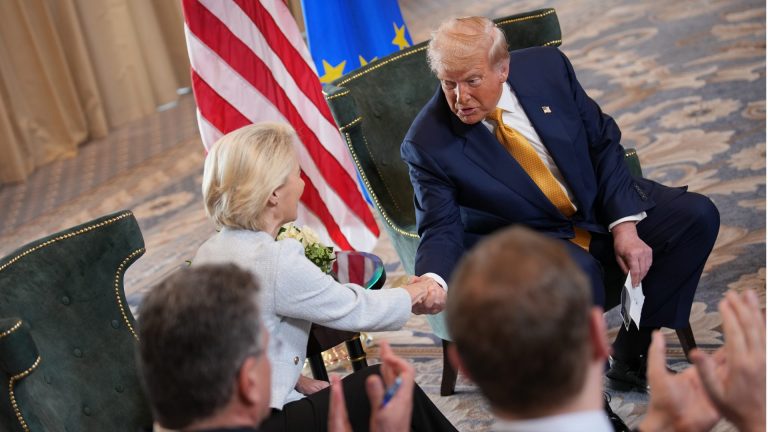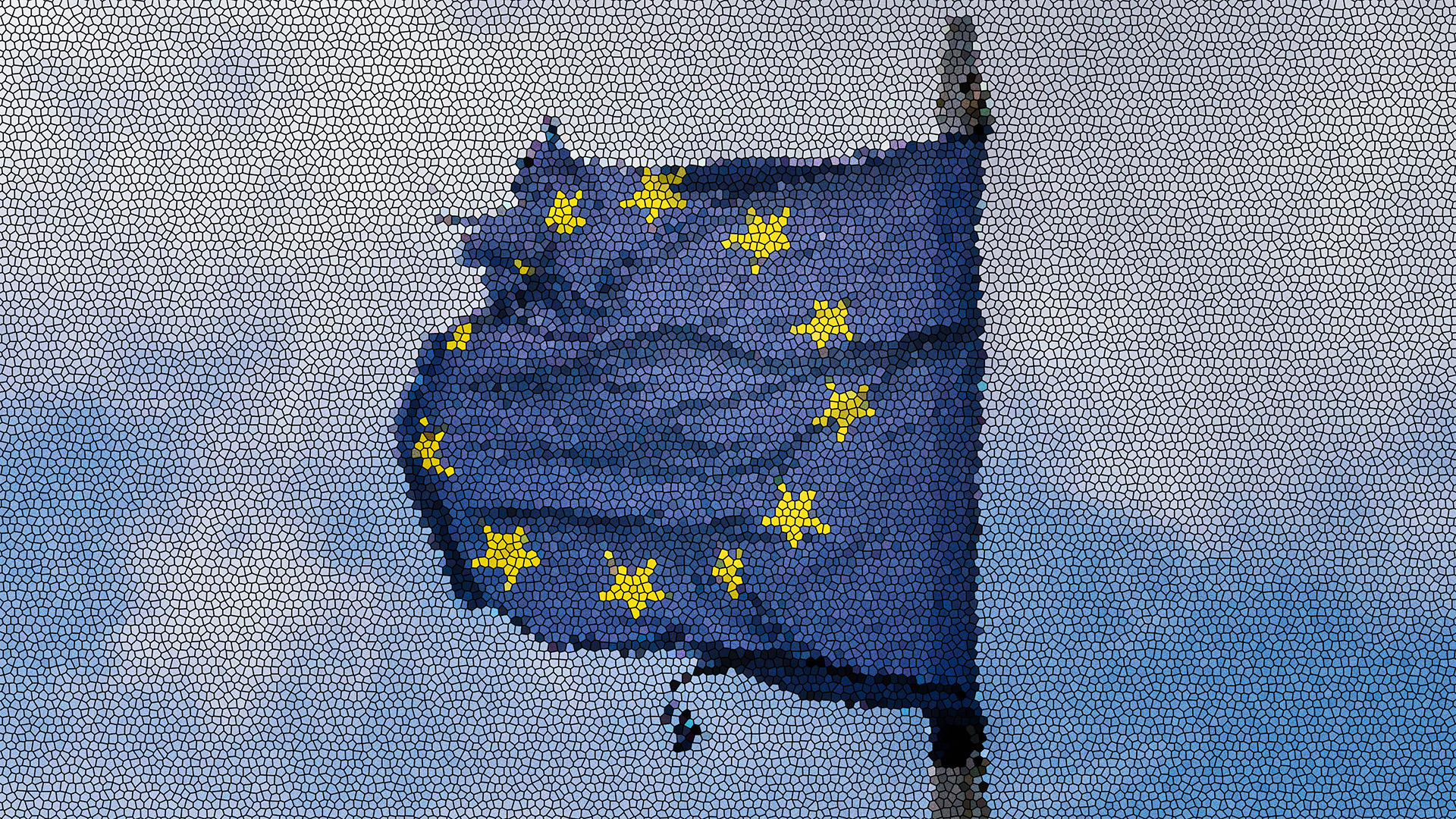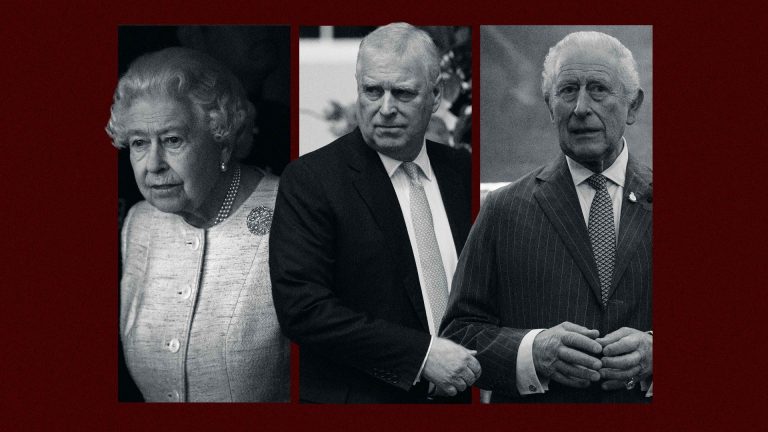The recent tariff negotiations between Brussels and Washington DC showed the structural issues that plague EU decision-making in a microcosm. Europe could not present a united front, with leading member states keen to protect their own interests and outliers like Hungary stirring the pot. This fatally weakened its bargaining position.
Zoom out and the same pattern emerges. Europe’s fragmentation is diminishing its economic fortunes. The EU’s single market – once its raison d’etre – remains unfinished. According to the IMF, intra-European trade barriers are comparable to internal tariffs of 44% on manufactured goods, and 110% on services.
The point of Europe was to create one unified trading bloc to reap the benefits from competition at scale – not an incoherent clutter that stifles growth.
Meanwhile, Europe’s industry is withering. Germany’s automobile exports, once the backbone of its growth model, have been steadily declining since 2018. Days after losing Intel’s planned 30bn euro chip plant investment in July, Berlin announced its plan to slash clean industry spending from nearly 25 billion to just 1.8bn euros. Across the union, the same pathology holds.
Despite its dependence on foreign oil and gas, Europe doesn’t have any world-class homegrown producers of photovoltaics, lithium-ion batteries, high-voltage grid infrastructure, or rare earths. Instead, as the Trump trade deal shows, we keep deepening our reliance on countries that seek to either exploit or control us – with no respite on the horizon.
By contrast, Beijing has spent the last few decades laser-focused on reducing technological dependencies on the West. The results are staggering: China now makes the most electric vehicles, solar panels, lithium-ion batteries, and satellites in the world. In fact, its growing dominance in export markets is threatening the very existence of Europe’s industrial base.
Suggested Reading


The EU was right to let Trump start a trade war with himself
While less overt about it, the United States, too, owes much of its technological prowess to decades of government spending. The Pentagon has poured billions into advanced technological research since the 1950s, funding the rise of giants like Intel, Qualcomm, Oracle, and NVIDIA.
Europe spent the last 20 years judiciously following WTO rules while its domestic manufacturers were stuck in small markets, with less access to capital, and surrounded by indirect trade barriers that their fellow Europeans erected. Unsurprisingly, Europe’s growth has trailed the United States, and many of its prized companies have moved overseas.
Compare the EU’s situation with China, where central government plays a stronger role in steering the economy, regulations are nationally unified, and local governments are incentivised to meet Beijing’s growth targets.
The EU has been working on an overdue solution: the European Competitiveness Fund (ECF). This would centralise spending power in the Commission and streamline the EU’s fragmented science funding programs – and most importantly, increase EU industrial policy spending to 450bn euros.
However, while the ECF’s proposed size looks promising, it would be spread over seven years, amounting to less than 70bn yearly. This is far from the trillions Washington and Beijing will spend in the same period. Nor would it fix the EU’s fragmented regulatory regimes, the preponderance of vetos, or the cross-overlapping incentive structures between different layers of government.
That’s why it’s vital to further centralise industrial policy and rule-setting power in Brussels.
Part of it is also fiscal. Most EU member states can’t access sufficient liquidity to fund large-scale industrial projects. Europe doesn’t have the dollar, so member states can’t issue reams of debt to the extent that Washington has.
That’s why we need to take a page from Beijing’s playbook and upgrade the European Central Bank. While its current mandate limits its ability to pursue industrial goals, the ECB has transformed itself in response to crises before, such as during the pandemic and global financial crisis. It should consider doing so again. The incoming macroeconomic shock caused by China’s industrial overcapacity will require nothing less.
Besides, there are efficiency gains in consolidating and centralising decision-making power in one single entity, rather than coordinating every minor decision between many different local and regional veto players. Stripping these actors of their ability to block policy makes it easier to achieve high-level strategic priorities at a lower cost. In practice, this requires further centralising power in the European Commission, Parliament, and Central Bank.
Reforming the Union to this effect would admittedly prove a formidable challenge – if not impossible. With member states already struggling to concur on trade and regulatory issues, how could they possibly agree to more centralisation? Nevertheless, political leadership must try – and this will take real vision and courage – because the stakes are too high, and the path we’re on is unsustainable.
Europe stands at a crossroads. It can choose the illusion of national sovereignty and keep following the same road to nowhere that Britain did after 2016. Or it can face these macroeconomic headwinds full-on and opt for more cooperation and centralisation – however revolutionary creating the first post-nation state might be.
Paul Bali’s Substack Chips, Guns and Money focuses on EU and global politics, economics, and technology.









